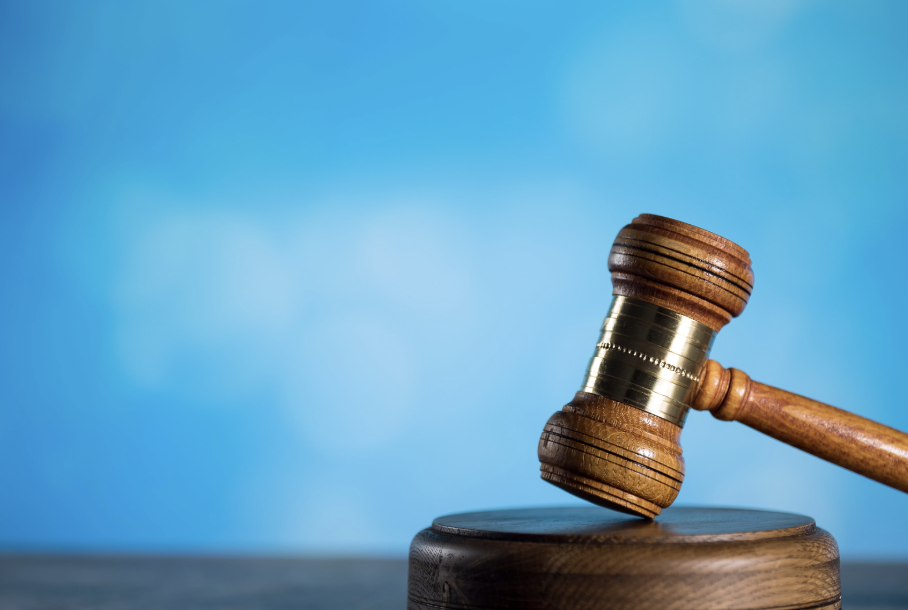Significant Ruling on Facial Recognition Technology: A Win for Privacy Advocates
In a landmark decision, the U.S. Court of Appeals for the D.C. Circuit has ruled that the federal government’s implementation of a nationwide facial recognition database infringes upon constitutional protections against unreasonable searches and seizures. This ruling comes as a considerable success for privacy advocates who have long argued against the potential risks posed by such surveillance technologies. The ruling effectively halts an initiative that has faced intense scrutiny for its potential to undermine the civil liberties of American citizens.
The Smith v. Department of Homeland Security Case
The ruling arose from the case Smith v. Department of Homeland Security, which involved a coalition of civil rights organizations and individuals who contended that the extensive use of facial recognition technology required more stringent oversight. Critics argued that such technologies, while aimed at enhancing national security, could lead to significant infringements on individual privacy without adequate checks in place. The program was launched in 2020 with the intent of using biometric data for monitoring public spaces and verifying identities but quickly drew concerns from advocates who viewed it as an overreach of governmental power.
The Court’s Findings
Chief Judge Patricia Millett delivered the court’s opinion, asserting that “The indiscriminate use of facial recognition technology without sufficient safeguards or judicial oversight is incompatible with the Fourth Amendment. Americans do not forfeit their right to privacy when they enter public spaces.” This declaration has broad implications, emphasizing the necessity of clear boundaries regarding government surveillance and highlighting the importance of individual privacy rights. The ruling mandates that the facial recognition database’s use be suspended immediately, restricting the Department of Homeland Security (DHS) from continuing its operations unless Congress introduces new legislation to clarify its scope and limitations.
Reaction from Privacy Advocates
Privacy advocates celebrated the ruling, considering it an essential milestone in the protection of individual rights amid advancing surveillance technology. Amelia Ortiz, the legal director at the Privacy Defense Fund, expressed her appreciation for the decision, noting, “This ruling is a crucial step in safeguarding Americans’ privacy rights in the face of expanding surveillance technologies.” Advocate concerns focused on the potential for facial recognition to lead to a surveillance state, which the court’s decision purportedly addresses through the establishment of necessary guardrails and limitations.
The Department of Homeland Security’s Position
In contrast, the DHS expressed disappointment over the court’s ruling, emphasizing their view of facial recognition technology as a crucial tool for ensuring national security. A spokesperson stated, “Facial recognition technology is a vital tool in preventing threats and protecting the homeland.” The agency intends to collaborate with Congress to address the court’s concerns while still striving to ensure public safety. This ongoing struggle between the need for security measures and the preservation of civil liberties remains a heated topic of discussion among lawmakers and stakeholders.
Implications for Law Enforcement and Private Sector Use
Critics of the ruling contend that restricting governmental use of advanced surveillance technology could impede vital efforts to combat terrorism, human trafficking, and other significant crimes. In response to the court ruling, some lawmakers have initiated the drafting of new legislation aimed at reinstating the program, albeit with tighter privacy protections. This effort signifies a recognition of the complexities surrounding the governance of surveillance technologies and the need to strike a balance that satisfies both safety and privacy advocates.
The Future of Facial Recognition Technology
This decision is likely to have a profound impact on ongoing discussions regarding not only government surveillance but also the use of facial recognition technology by private entities and local law enforcement agencies. Legal experts anticipate that the ruling may set important precedents for future cases surrounding emerging surveillance technologies. Given the polarized public opinion around privacy versus security, this ruling emphasizes the ongoing struggle to navigate the intersection of technological advancements with constitutional rights.
Conclusion
The recent ruling by the U.S. Court of Appeals for the D.C. Circuit against the use of a nationwide facial recognition database marks a pivotal moment in the ongoing debate over privacy, security, and civil liberties in the digital age. As Congress prepares to reassess the legal landscape surrounding such technologies, the future of facial recognition in the United States remains uncertain. Advocates on both sides are likely to continue their efforts to shape legislation that addresses the nuances of privacy and national security, ensuring the conversation remains central in the public and legislative arenas.
FAQs
What is facial recognition technology?
Facial recognition technology refers to biometric software that can identify or verify a person by analyzing facial features from images or videos. This technology is increasingly used in various applications, including security systems, law enforcement, and consumer technologies.
What was the main argument against the facial recognition database?
The main argument against the facial recognition database centered on the lack of oversight and safeguards associated with its use. Critics argued that it violated the Fourth Amendment rights of individuals by enabling unreasonable search and seizure practices without proper checks in place.
What are the implications of the court’s ruling?
The court’s ruling halts the use of the facial recognition database and demands that any future proposed legislation be clearly defined in terms of scope and limitations. This ruling may influence similar cases and spark debates around the use of surveillance technologies both in public space and by private entities.
How might this decision impact local law enforcement and private companies?
This decision could lead to increased scrutiny over how local law enforcement agencies and private companies utilize facial recognition technology. It may prompt new regulations and discussions regarding privacy protections and the ethical use of biometric technologies.
What happens next regarding the facial recognition technology?
Moving forward, Congress will likely engage in discussions to address the court’s ruling. Potential legislation could seek to redefine the parameters for the use of facial recognition technology, aiming to strike a balance between public safety and individual privacy rights.

